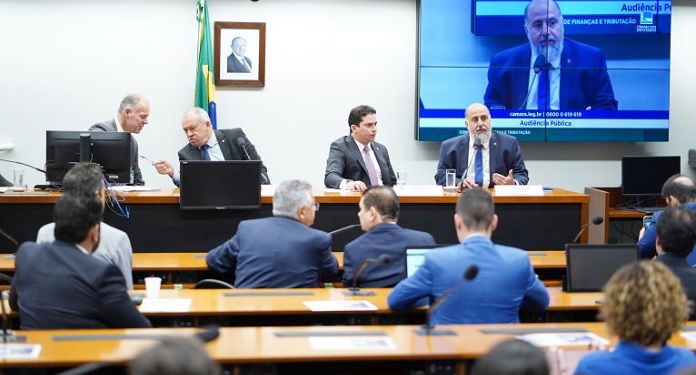The expectation of the sports betting market in Brazil revolves around the provisional measure with the regulation of the sector that is being prepared by the federal government, providing for the collection of taxes and establishing rules for operation. The MP’s guidelines were discussed this Wednesday, 12, in a public hearing at the Finance and Taxation Committee of the Chamber of Deputies.
This debate included representatives from entities in the gambling sector, lotteries, operators, gamblers, the Ministry of Finance and parliamentarians. Special advisor José Francisco Manssur, representative of the Ministry of Finance at the public hearing, opened the session. He pointed out that the provisional measure will require minimum capital from betting operators, who will also pay for grants. They must maintain tax domicile in Brazil, in addition to allocating part of the teams and structure in the country.
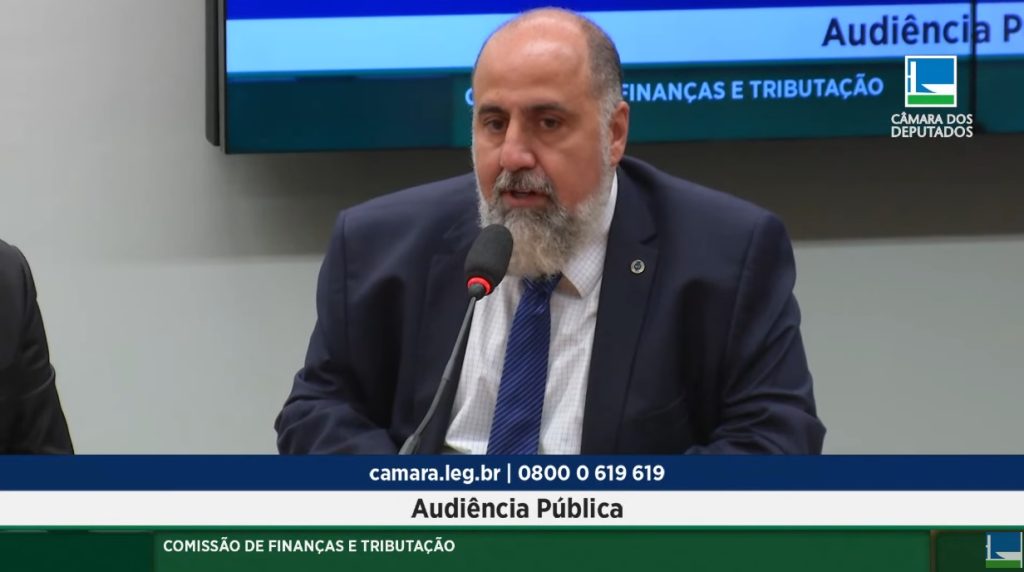
Sports betting was created by Law 13.756/18. “The law for the first time provided for betting on sports predictions, that is, betting was brought to the legal system by this 2018 text, sports betting is not being created now. What the government is doing now is regulating, something that in 2018 was given a period of 2 years extendable for another 2 years for the executive branch to make this regulation and it was not done. What the current government is doing now is filling this gap in order to regulate this activity that, even though not regulated by the previous government, has grown exponentially in the number of gamblers, in numbers involved”, said Mansur.
“Our debate was: what is the appropriate legal instrument to regulate the activity? Appropriate is the MP, and, on our part, it brings the opportunity to bring this debate to the federal congress and not do it by decree without the participation of parliament”, he explained.
The representative of the Ministry of Finance also commented on the need for ordinances, after the regulation MP, to adjust other issues pertinent to the sports betting market. “Earnings manipulation: in the last 3 months we heard from operators, who have always been open to dialogue, bringing international experiences. Operators are victims of earnings manipulation, because manipulation breaks the bank. And, they brought the mechanisms that exist abroad more We spoke with the CBF (Brazilian Football Confederation) and the Brazilian Olympic Committee (COB) to understand how the entities can participate, working together with the federal government to avoid manipulation”, concluded Mansur.
Operators and entities in the sports betting sector support the regulation
Bookmakers that operate sports betting from bases abroad are in favor of the regulation, informed the National Association of Games and Lotteries and the Brazilian Institute of Responsible Gaming. Wesley Cardia, CEO of the National Association of Games and Lotteries (ANJL), spoke about the changes in Brazilian legislation.
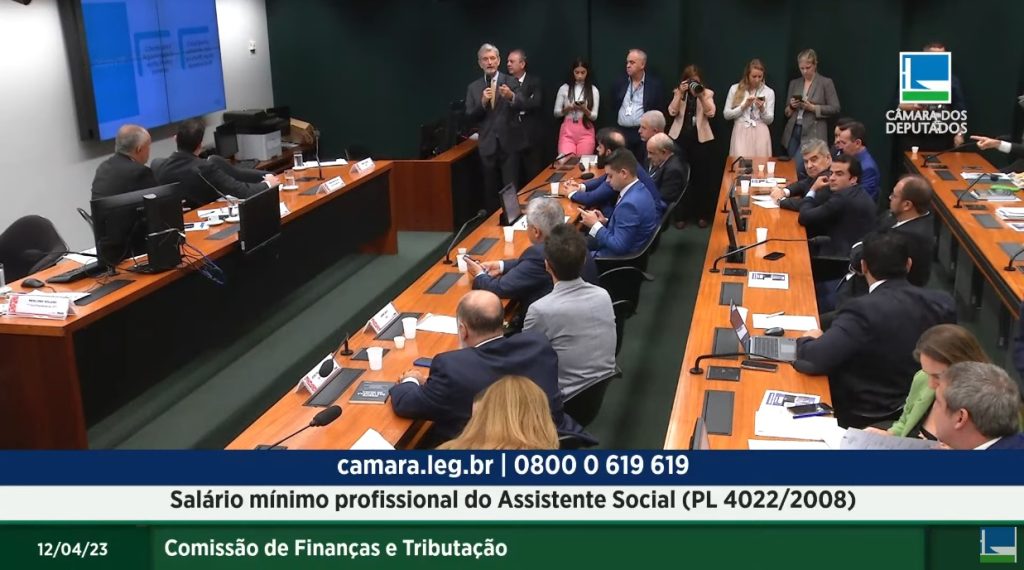
“This PM will interfere or change, or mess with all the legislation that has been edited since 1997. A decree was made for regulation and promised for 4 years and did not come out, the deadline for it to be edited was December 12 of the year past, and unfortunately it did not happen. The current government wisely opted for an MP followed by ordinances from the Ministry of Finance that will allow a precise adjustment, on top of the bid for each need that is felt “, he argued.
“Fundamental elements of control of the activity by the State: only licensed sites will be able to operate, only licensed sites will be able to advertise and sponsor; FIFA’s restrictions on betting on players, coaches, etc. must be reiterated; unlicensed sites must have their domain hunted; effective control of the Federal Revenue, Central Bank and COAF suffers financial operations”, added Cardia.
André Gelfi, president of the Brazilian Institute of Responsible Gaming (IBJR), reinforced the need to create clear rules for the sector. “As a representative of the entity, I believe I can share the international experience of our members on the importance of creating clear rules for regulating the sector, not only for the safe and legal operation of companies, but also to contribute to the integrity of Brazilian football. and ensure the safety of players”.
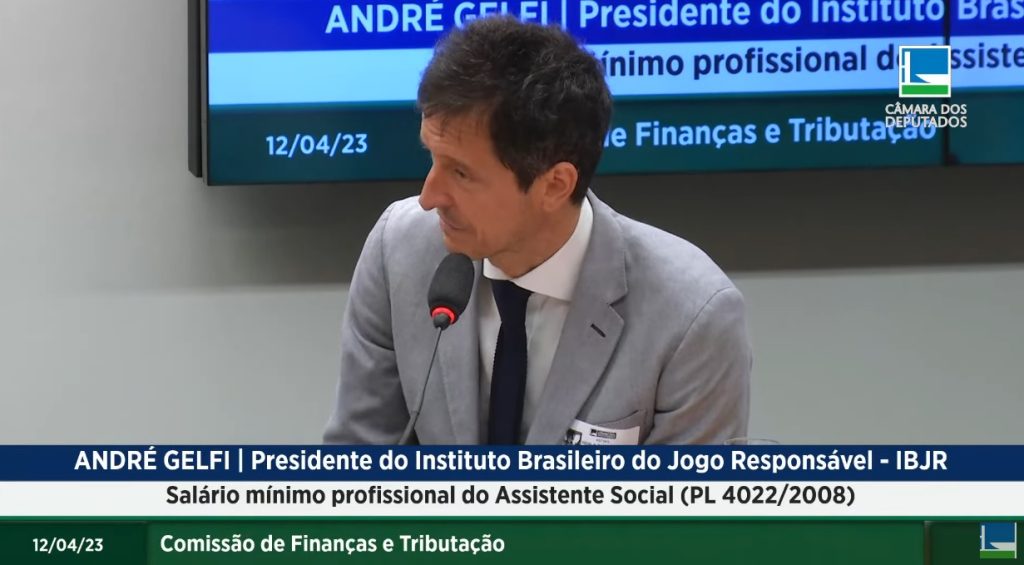
“We developed some studies on the sector, including the tax impact that were presented to the Ministry of Finance and members of Congress in order to contribute to decision-making on the tax model for the sector. So today I can answer questions that reference our experience operating in regulated sports betting markets, information about what responsible gaming is and how regulation is beneficial and essential for safe entertainment, for operators and players alike. Brazilians,” added Gelfi.
Marcio Malta, CEO of Sorte Online, made some recommendations related to obtaining licenses and taxation of the activity in order to provide legal certainty to the players. “A survey carried out by Globo in 2021 showed that 70% of federal lottery players are sports betting players, but we are prevented from operating in this market due to the level of legal security offered. We believe regulation can generate more value for the state right away.”
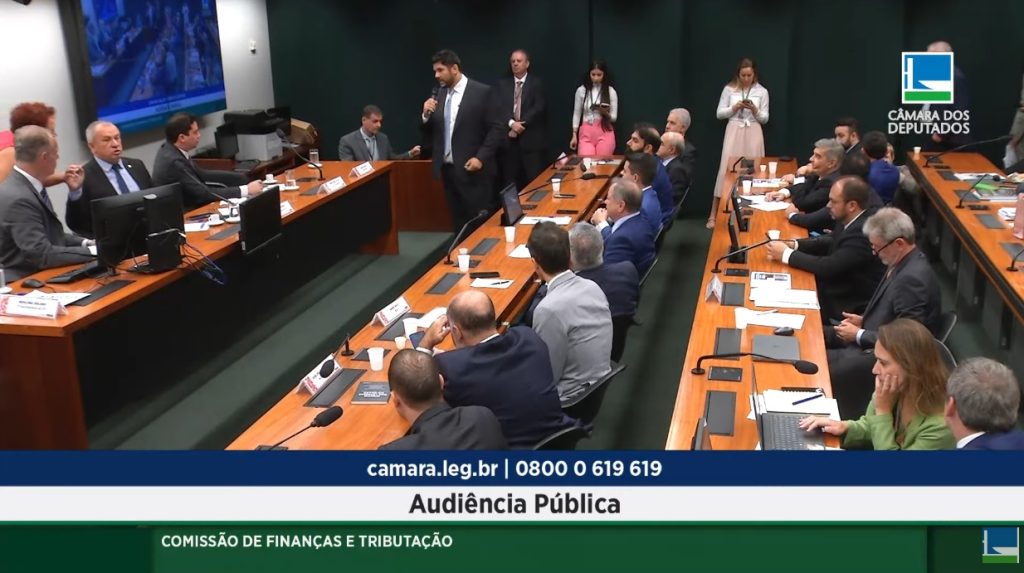
“This is our recommendation, unlike waiting for licenses to be made available for tax collection, that collection be available at the time of regulation and whoever requests licenses presents paid tax forms and has some type of preference or priority in apply for the license. This is our understanding so that the legal security and level of competitiveness of those who operate is guaranteed. In addition, we understand that the government’s interest in balancing accounts and increasing revenue is fulfilled”, added Malta.
Expert on the subject, lawyer Roberto Carvalho Brasil Fernandes supported the general lines of the provisional measure. “We cannot miss this opportunity. The media highlighted, in the minister’s words, the expectation of revenue between 6 and 12 billion reais. If we talk about 6 billion reais per year, we are talking about 500 million reais per month. month that we stop regulating this activity and have business activity performing this function, we lose from 500 million to 1 billion reais, in addition to the other benefits of the activity”.
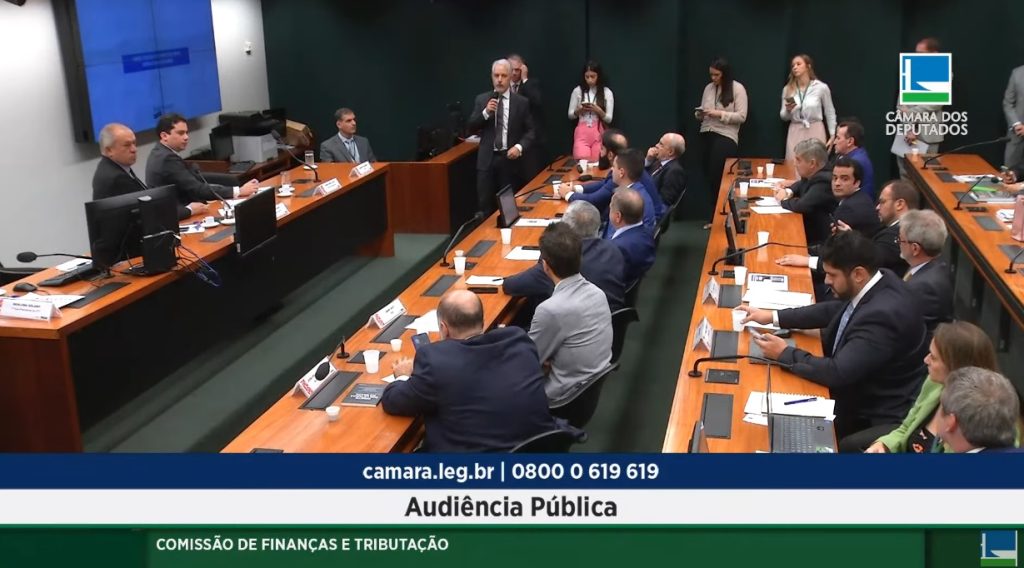
Ricardo Santos Perassoli presented himself as a representative of approximately 10 million online sports bettors throughout Brazil. “This is a serious activity that sustains several families, involves a lot of money and a lot of jobs as well. We have to wonder why sports betting has grown in Brazil? because they are working and bettors are able to extract value, make real money in the market. If taxing the punter for the winning bet is going to be a shot in the foot, punters are ready to go offshore. I’m being honest with you, because there’s no way to make money, it’s mathematically impossible, if you tax the gambler per winning bet like the lottery”.
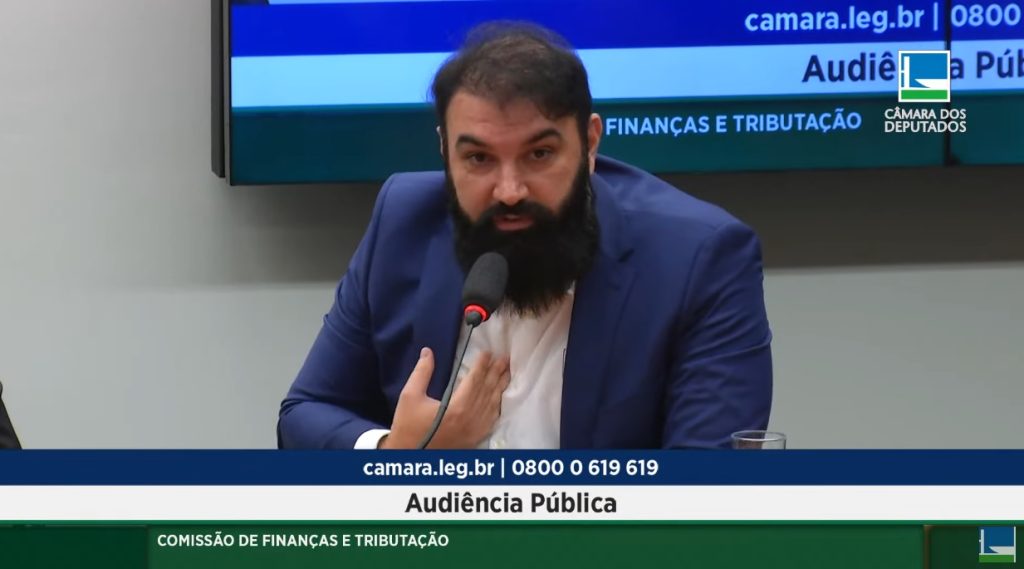
“We want to pay taxes like everyone else, obviously. Only the bettor is charged the tax on the profit we have. Now if I win a bet on a game and you charge me the tax, then I lose on the other and that is not discounted, this makes the activity impossible. And, bettors, for sure, will go to the offshore market and there is no way to supervise that. We are in favor of regulation, we are available to talk about it, but taxation needs to be on profit and not on the winning bet”, Perassoli.
Aldemar Mascarenhas, representative of the Brazilian Federation of Lottery Companies (FEBRALOT), reinforced the need to include Caixa Econômica Federal in the debate on the activity. “I come to talk about something consolidated, the Caixa Econômica Federal lottery network, which we represent. Today we form a group of 3,500 companies present in more than 5,000 Brazilian municipalities, bringing opportunity to the most needy population”.
“We are consolidated in the market, we closed 2022 with the sale in lotteries of 22 billion reais, of which 48% were passed on to the National Treasury, which assists the government’s social programs. We also want to be included in this context because there is a culture in Brazil that plays at the lottery shop. Online is there, but we need to have our physical store and keep jobs. This is a very representative segment”, he concluded.
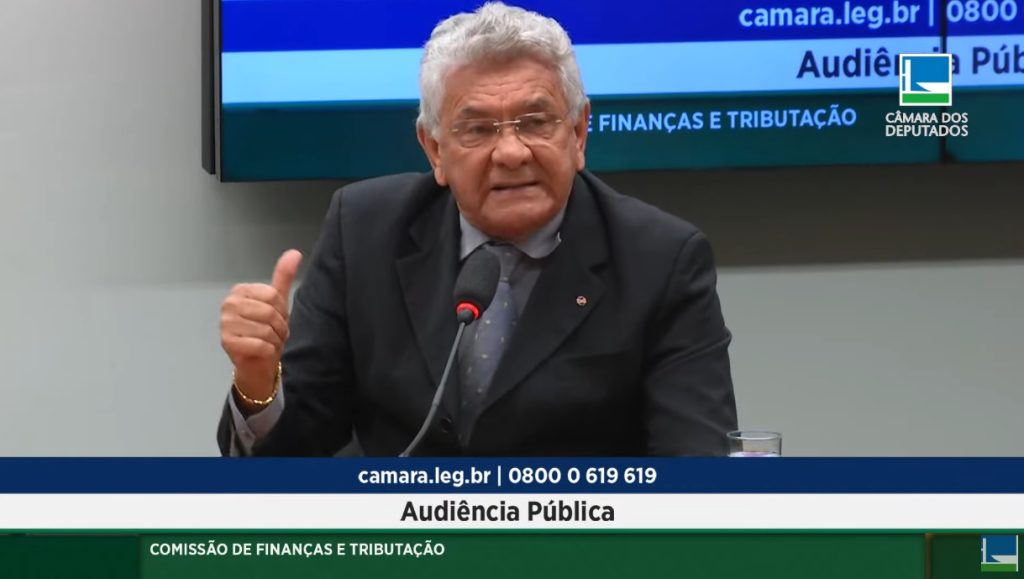
Deputies attended the meeting
Deputy Júnior Mano (PL-CE), who asked for the debate, recalled that the Temer government enacted Law 13.756/18, which governs the permission for the operation of popular foreign betting sites in the country. Still according to him, the big bookmakers receive a high volume of money and, consequently, a significant profit. The deputy pointed out that the purpose of the hearing was to analyze the proposal of the Minister of Finance, Fernando Haddad, who on March 1st said that Brazil should tax sports betting.
During the debate, deputies Bacelar (PV-BA), Newton Cardoso Jr. (MDB-MG), Thiago de Joaldo (PP-SE) and Vermelho (PL-PR) recalled that the Chamber has already approved a proposal that legalizes all gambling in Brazil. In the Senate, where it will still be analyzed, Bill 442/91 is being processed as PL 2234/22.
In addition to representatives of other business entities in the lottery sector and also of players, the Finance and Taxation Commission, chaired by deputy Paulo Guedes (PT-MG), participated in the debate in the Finance and Taxation Commission, deputies Luiz Lima (PL-RJ), Merlong Solano ( PT-PI) and Wellington Roberto (PL-PB).
































